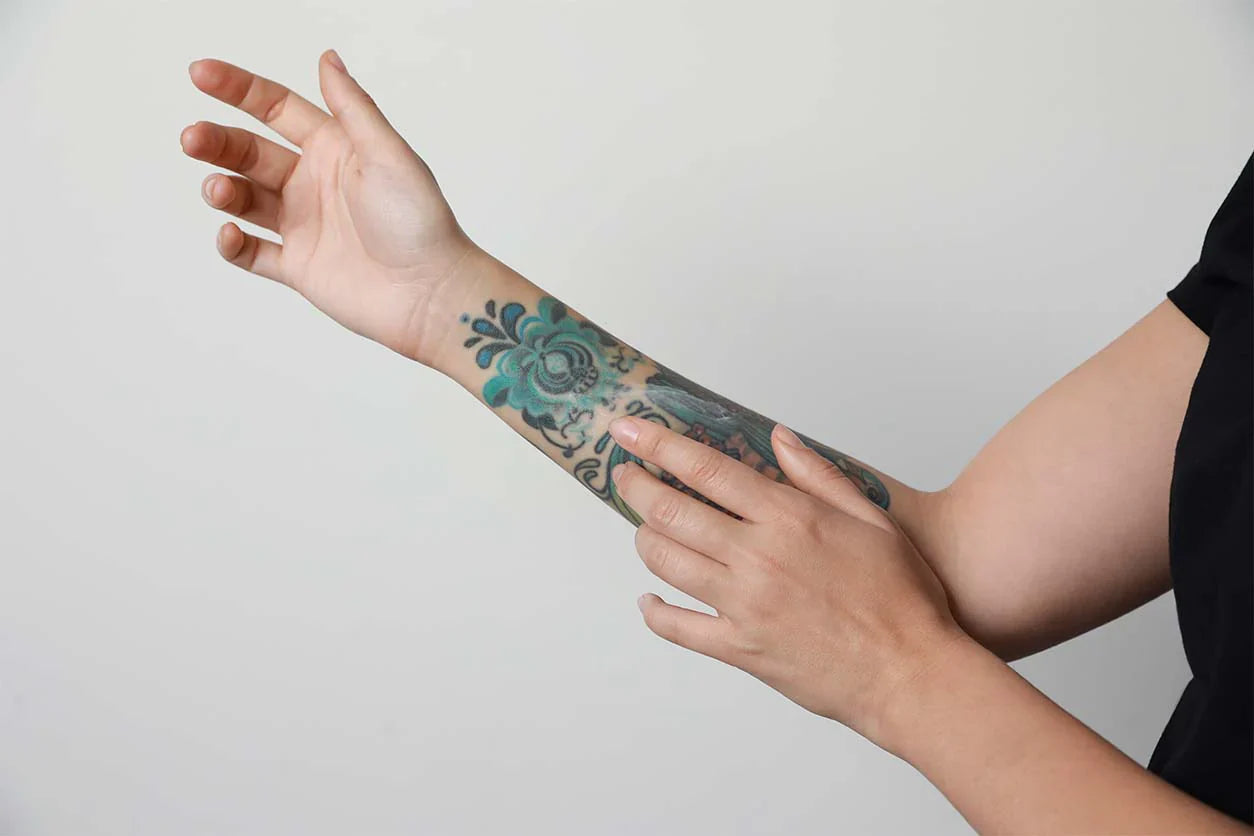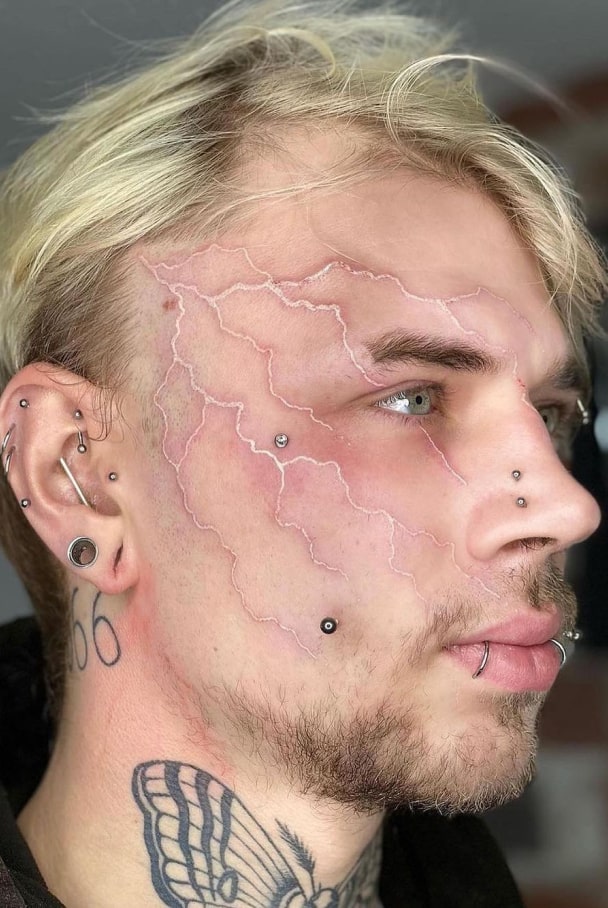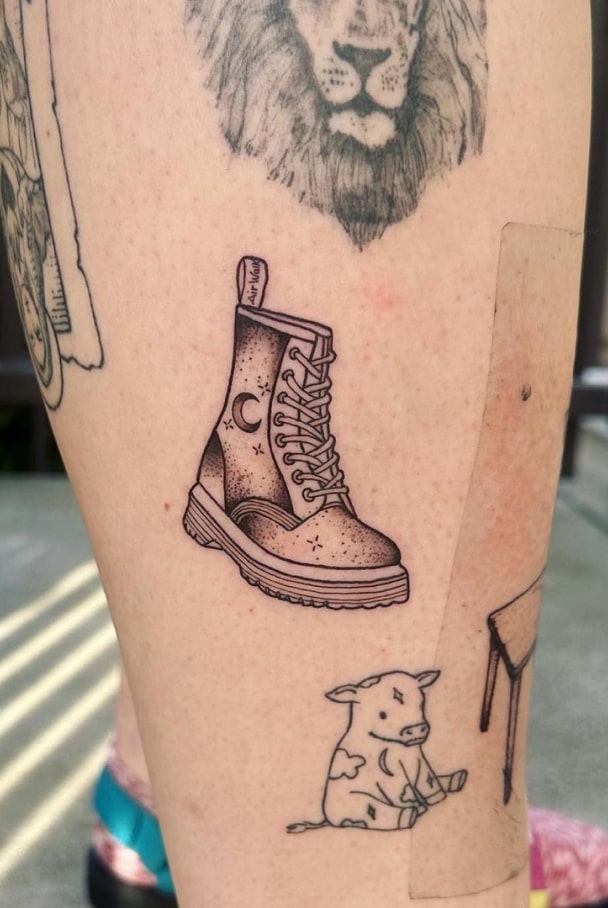From the buzz of the needle to the rush of adrenaline, getting a tattoo is a unique experience. For many, one tattoo quickly turns into two, then five, then a full sleeve. This growing fascination often sparks the question: Are tattoos addictive? The answer lies in a fascinating blend of science, psychology, and personal expression.
The Neuroscience of Tattooing
Let’s start with the science. When you get a tattoo, your body goes through a series of responses. First, there’s the pain. Your brain registers the repeated needle pricks as an injury, which causes a release of endorphins – the body's natural painkillers. Endorphins not only dull the pain but can also create a sense of euphoria, like a "runner's high."
This feel-good chemical cocktail can make the tattooing experience more enjoyable than expected, even addictive for some. That rush of endorphins, combined with the thrill of doing something bold or meaningful, can encourage people to return for more.
Psychological Factors: Identity and Empowerment
Beyond the biology, there’s a strong psychological component to why tattoos can feel addictive. Tattoos are a form of self-expression. They allow people to reclaim ownership of their bodies, tell their stories, and display parts of their identity that are deeply meaningful.
According to psychologists, each new tattoo can reinforce self-concept and individuality. People often report feeling more confident, empowered, or emotionally satisfied after getting a tattoo. When a person finds meaning or healing in their ink, it can drive a desire to experience that feeling again.
Some individuals also use tattoos as a form of therapy or coping. For those who have experienced trauma, body image issues, or mental health challenges, tattoos can serve as powerful markers of survival and transformation. The process of getting tattooed can feel like regaining control, one piece of art at a time.
Habit-Forming Behavior
While tattoos aren't chemically addictive in the same way as drugs or alcohol, the behavior can become habit-forming. Similar to shopping, exercising, or even social media scrolling, the act of getting tattooed can become a rewarding ritual.
After the first tattoo, people often start planning their next design. Tattooing can become a hobby, a lifestyle, or even part of a person's identity. There’s a sense of community in tattoo culture that reinforces the behavior, making it easier and more appealing to return for more sessions.
The Role of Aesthetics and Body Art Culture
Let’s not forget the artistic side of it all. Tattoos are visually appealing. They transform the body into a canvas and showcase creativity. With so many styles, colours, and designs available, it’s easy to see how someone could want to keep exploring what’s possible.
Tattoos also evolve with trends, personal growth, and life experiences. What starts as a small tribute to a loved one might grow into a full back piece that tells an entire life story. This ongoing evolution adds to the desire to continue getting inked.
Tattoos and Social Identity
Social psychology also plays a role. Tattoos can connect people with subcultures or like-minded communities. Whether it’s punk, spiritual, biker, or artistic groups, tattoos help individuals feel like they belong.
In today’s world, tattoos have become increasingly mainstream, shedding much of the stigma that once surrounded them. The normalization and celebration of body art in media and fashion contribute to more people embracing ink as a form of personal style.
When Tattooing Becomes a Compulsion
While tattoos are generally a healthy and creative outlet, there are cases where the behavior becomes compulsive. Some individuals may get tattoos to fill emotional voids or to distract themselves from deeper issues.
This doesn’t mean everyone with multiple tattoos has an addiction or problem, but it’s worth noting when the motivation shifts from expression to escape. If someone is getting tattoos impulsively, without thought or regard for their wellbeing, it may indicate a deeper psychological issue worth exploring with a professional.
Is Tattoo Addiction Real?
Technically speaking, tattoo addiction isn’t recognized as a clinical disorder. However, the behavioral patterns and psychological motivators behind frequent tattooing can resemble addiction-like tendencies in some people.
It comes down to why and how often someone gets tattooed. If it’s a joyful, creative choice that brings meaning, confidence, or community, it’s likely a healthy habit. But if it’s driven by emotional avoidance or becomes financially or socially harmful, that’s a different story.
Conclusion: It’s More Than Skin Deep
So, are tattoos addictive? Not in the traditional sense – but the combination of brain chemistry, personal meaning, and lifestyle appeal can make tattooing an incredibly compelling experience.
For many, getting tattoos is about storytelling, healing, and celebrating identity. For others, it may be a passion or artistic pursuit. The key is self-awareness. If the process enhances your life, connects you to others, or helps you express who you are, then tattoo away.
Just remember, it’s not about how many tattoos you have – it’s about what they mean to you.








